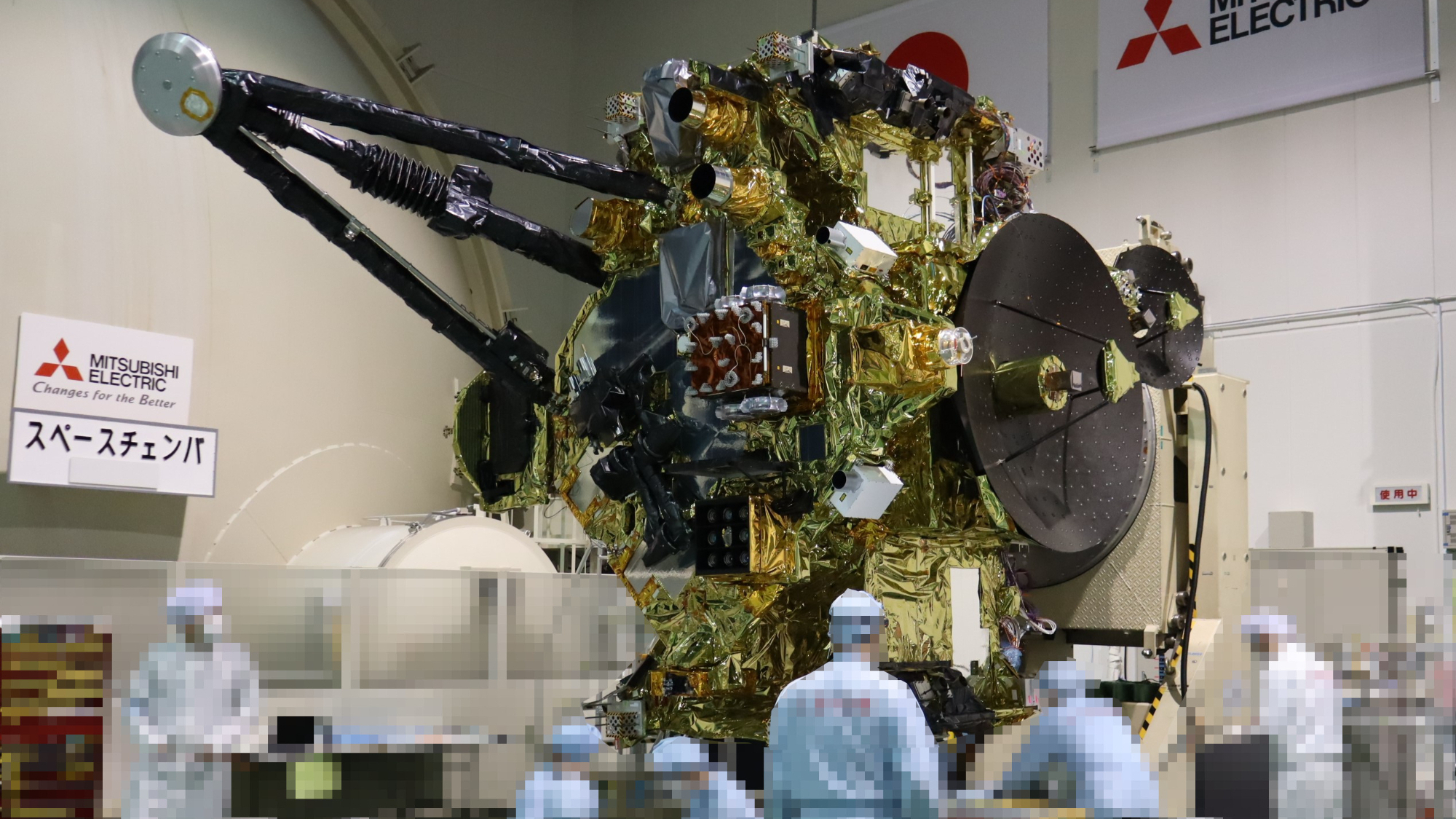Japan is putting its Martian Moons eXploration (MMX) spacecraft through a series of tests ahead of its launch to Mars next year.
MMX is a complex mission to collect samples from the moon Phobos and deliver them to Earth to solve the riddle of the origin of the tiny Martian satellite.
The spacecraft has been put into a vacuum chamber to test its readiness for deep space, the Japan Aerospace Exploration Agency (JAXA) announced on May 15 via its official mission channel on the social media platform X.
"MMX is undergoing a thermal vacuum test, in which the spacecraft is placed in a vacuum chamber where the environment simulates outer space and the operation for each of the onboard instruments is checked," JAXA stated.
The image shows the spacecraft's return and exploration modules, while MMX's little IDEFIX rover can be seen in the center, attached to the exploration module. The 55-pound (25 kilograms) IDEFIX rover was developed by the German Aerospace Center (known by the German acronym DLR) and the French space agency Centre National d'Etudes Spatiales (CNES).
MMX is undergoing a thermal vacuum test, in which the spacecraft is placed in a vacuum chamber where the environment simulates outer space and the operation for each of the onboard instruments is checked. The return and exploration modules are ready to be tested in this photo! pic.twitter.com/1RwiLOY4g7May 15, 2025
A main objective of MMX is to determine whether Phobos and the smaller companion moon Deimos are captured asteroids, or formed from fragments blown into orbit after a giant impact struck Mars. The mission also aims to provide new insights into the history of the Red Planet and planetary formation in general across the wider solar system.
MMX is due to be launched on Japan’s flagship H3 rocket from Tanegashima Space Center during the next Mars launch window, in November-December 2026. It was earlier scheduled to launch in the previous launch window in 2024, but this was delayed due to issues with the H3 rocket.
If all goes well, MMX will arrive in orbit around Mars in 2027 to begin mapping and analyzing Phobos and Deimos and search for a landing site. MMX will then land on Phobos in 2029 to collect around 0.35 oz (10 grams) of samples. These are expected to be delivered to Earth in 2031.
.png)
 German (DE)
German (DE)  English (US)
English (US)  Spanish (ES)
Spanish (ES)  French (FR)
French (FR)  Hindi (IN)
Hindi (IN)  Italian (IT)
Italian (IT)  Russian (RU)
Russian (RU) 









Comments